Celebrating international nurses day
ANMF (VIC BRANCH)

On International Nurses Day 2020, we celebrate the 200th anniversary of the birth of the world’s most famous nurse, Florence Nightingale.
Nightingale’s promotion of evidence-informed health policy and care to save lives reverberates today, as nurses practise within the context of the Covid-19 global pandemic.
The five nurses you’re about to meet illustrate the great diversity and dedication of the nursing profession.
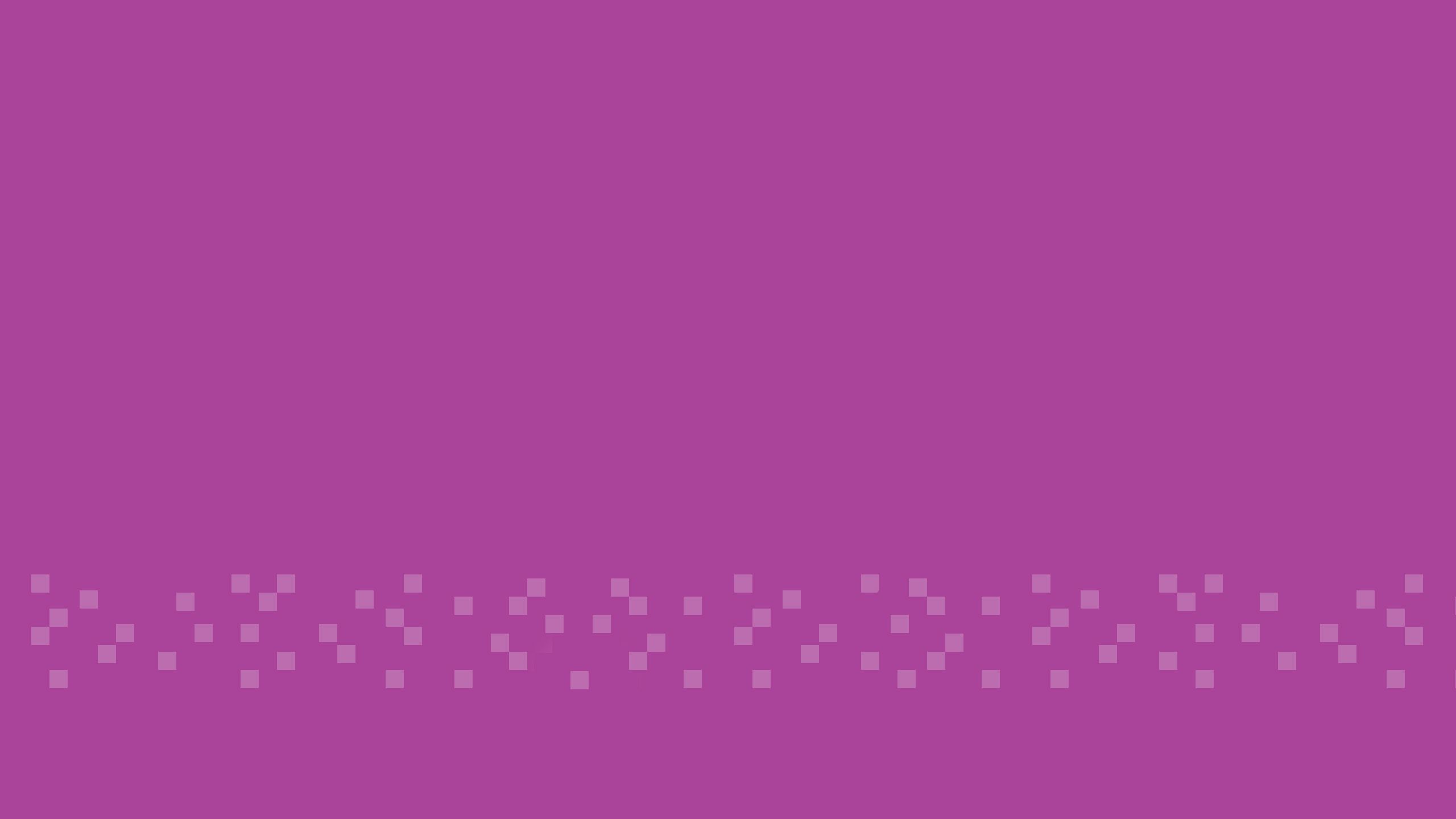
Rising to the Covid-19 challenge in ICU
Narkitaa Van Ekeren
Narkitaa Van Ekeren talks about what ICU nursing is like
For intensive care unit (ICU) registered nurse, Narkitaa Van Ekeren, news of the first coronavirus cases in Australia coincided, in mid-January, with becoming the nurse unit manager of 95 staff at Northern Hospital’s ICU.
‘It’s been really challenging. I’ve felt like I’ve been dropped in the ocean,’ Narkitaa said. ‘I’ve tried to remain calm so the staff don’t feel my anxiety.
‘I’m not new to the health service, so that has certainly helped with hitting the ground running.’
Having had other roles within the hospital, including resuscitation coordinator, ICU liaison coordinator, quality and safety coordinator and ANUM, has helped build the team relationships required to prepare for a pandemic, as has prior knowledge of the hospital’s systems and policies.
What’s also helped is 18 years’ experience working in intensive care, 17 of them at Northern Hospital. She has also worked during that time as an agency nurse in intensive care at The Austin Hospital.
While adapting to managing her ICU team during the coronavirus crisis, Narkitaa's two boys, aged 12 and 9, went to stay with her husband’s parents in country Victoria. At least Narkitaa and her husband were relieved from worrying about their children's safety and home schooling.
Working in ICU develops one’s capacity to respond rather than react. Narkitaa reassured the team that they had the education and experience to care for Covid-19 patients and adopt the required precautions. Fortunately, the increased demand has not eventuated and there has only been one high acuity Covid-19 patient needing intensive care at Northern Health.
‘This patient received all the care that we’ve been seeing overseas so it was good to see the team come together and provide the care the patient needed and he’s made a good transition to the ward,’ Narkitaa said.
Narkitaa studied nursing at Victoria University and completed her postgraduate education in intensive care only a year later, at RMIT.
‘I knew early on (that) ICU was for me. It was my passion. I really enjoyed it as a student nurse; I really thrived,’ she said.
At the Royal Melbourne Hospital, where Narkitaa did her student placements, she ‘fell in love’ with intensive care nursing.
‘Every day’s a challenge and you see patients at their most vulnerable. You’re able to provide all levels of care and it’s constantly changing,’ she said.
‘You have to do critical thinking all the time, you’re planning ahead. Yes, you see patients deteriorate on a monitor but it’s picking that up before it happens.
‘You’re putting plans in place because time is often of the essence.’
Nursing in intensive care involves coordinating multi-disciplinary teams, frequent interaction with patients’ families and strong patient advocacy because patients are often too ill to communicate for themselves.
As a former ICU liaison coordinator, Narkitaa used to oversee the ICU patients who had been discharged to other wards; this is a good outcome for an intensive care patient.
‘Their care is often complex and there’s a full system approach – because often they’re not in with a single organ failure – often there’s more than one organ impacted,’ Narkitaa said.
As a student nurse in ICU, Narkitaa experienced patients’ deaths early in her nursing career.
‘It can be confronting but you can also have some rewarding scenarios where you’ve seen people on the brink of death and you’ve supported them, you’ve supported the family.
‘You’ve often seen the family come in every day and you have a different level of interaction with them because their loved one is so vulnerable.’
Nursing some ICU patients involves a fine balance between providing critical care and palliative care.
Asked when she has felt privileged to be a nurse, Narkitaa recalled a time, early in her career, when a patient was dying after having a severe heart attack at home.
‘We were going through the end of life care with him and he had young children who were in the room with him as we were withdrawing treatment.
‘Being in a clinical environment, that was really hard, and I just picked the child up and put him on the bed and said: “You hug your dad”. It was instinct.
‘It was really emotional and later, reflecting, the wife thanked me and said “I didn’t know I could do that”. Yes, we’re in a clinical environment, yes there are things around you but remember the person in the bed. (The family) are going to remember that forever.’
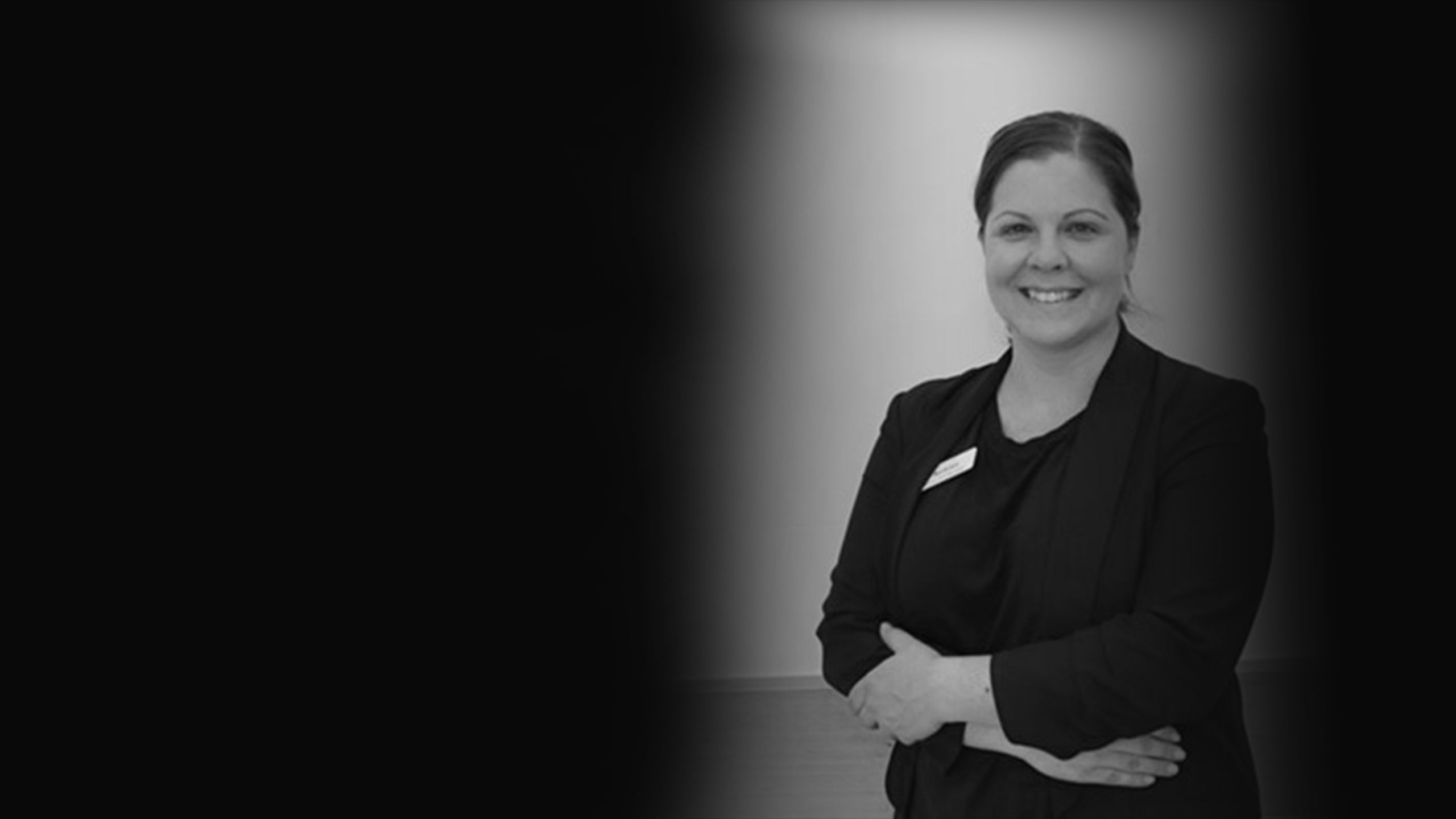
Nursing suspected Covid-19 patients
Kate Wiltshire
As a registered nurse at The Austin Hospital’s general medical ward, Kate Wiltshire remembers thinking that her ward would be the most likely candidate for Covid-19 patients.
After all, ‘gen med’ is the ward for patients with conditions ‘that don’t fit anywhere else’, Kate said. Kate has been nursing for 23 years, 11 of them on the 7-West general medical ward at The Austin.
Kate, who studied nursing at the Gippsland campus of what is now Federation University, initially wanted to work in paediatrics.
‘I did a rotation in paediatrics in my grad year and I had a young patient who ended up passing away while I was there and I didn’t deal with it very well,’ she said.
‘I thought “You know what, kids are not supposed to die.” ’
Usually on gen med Kate’s patients are older people, some arriving from aged care facilities. Occasionally the gen med nurses will care for younger patients with eating disorders who have been admitted because their electrolytes need to be stabilised.
Like many Australians, Kate first heard about coronavirus via the television news, when the first cases began to proliferate in Wuhan, China, in January. On 11 March the World Health Organisation declared Covid-19 was a pandemic.
On 16 April, Kate’s ward became a dedicated ward for suspected Covid-19 cases. The neighbouring ward, 7-East, had been operating as a dedicated ward for confirmed cases since 30 March.
With Kate’s ward dedicated to suspected Covid-19 patients, the maximum number of patients was reduced from 32 to 14 to allow more space between patients. Of course, there are also restrictions on visitors and all staff wear PPE.
Only 7-West doctors and nurses, ward clerks and cleaners are allowed to enter the ward.
As patients are staying on the ward until their test results return, the staff working on the suspected of Covid-19 ward have been kept busy admitting and discharging patients, either to the confirmed cases ward or home.
‘They might present with a sore throat or another issue. One lady came in today to ED for a completely different issue but there was a person at her (aged care) facility showing some symptoms so they swabbed her.
‘We get others come in with raging fevers for two weeks and their GP has referred them for screening.’
In preparing for the wards to become dedicated Covid-19 wards, staff were anxious, Kate said, and had a lot of questions.
‘It was quite a tense time,’ Kate said.
‘People were worried would we come down with it, would we have enough PPE, but anytime we’ve ordered any PPE we’ve got it in within a couple of hours.’
Kate, an ANMF Job Rep, credited the hospital’s management with communicating clearly and thoroughly about processes, and ensuring staff questions were answered.
Wearing PPE all day is a hot, sweaty business, Kate said, and uniform regulations have been relaxed so staff on the Covid-19 wards can wear lightweight clothes to work to wear under their protective clothing. Showers are available and staff bring another set of clothes to change into post-shift.
Caring for suspected Covid-19 patients is now another experience of nursing in a 23-year career.
Kate remains inspired by her capacity, through her work, to help people.
‘A lot of the time, people come in and they’re really sick and when they’re ready to go home, they’re a lot better and you know you’ve made a difference to them,’ she said.
‘Most of the time they really appreciate it!’
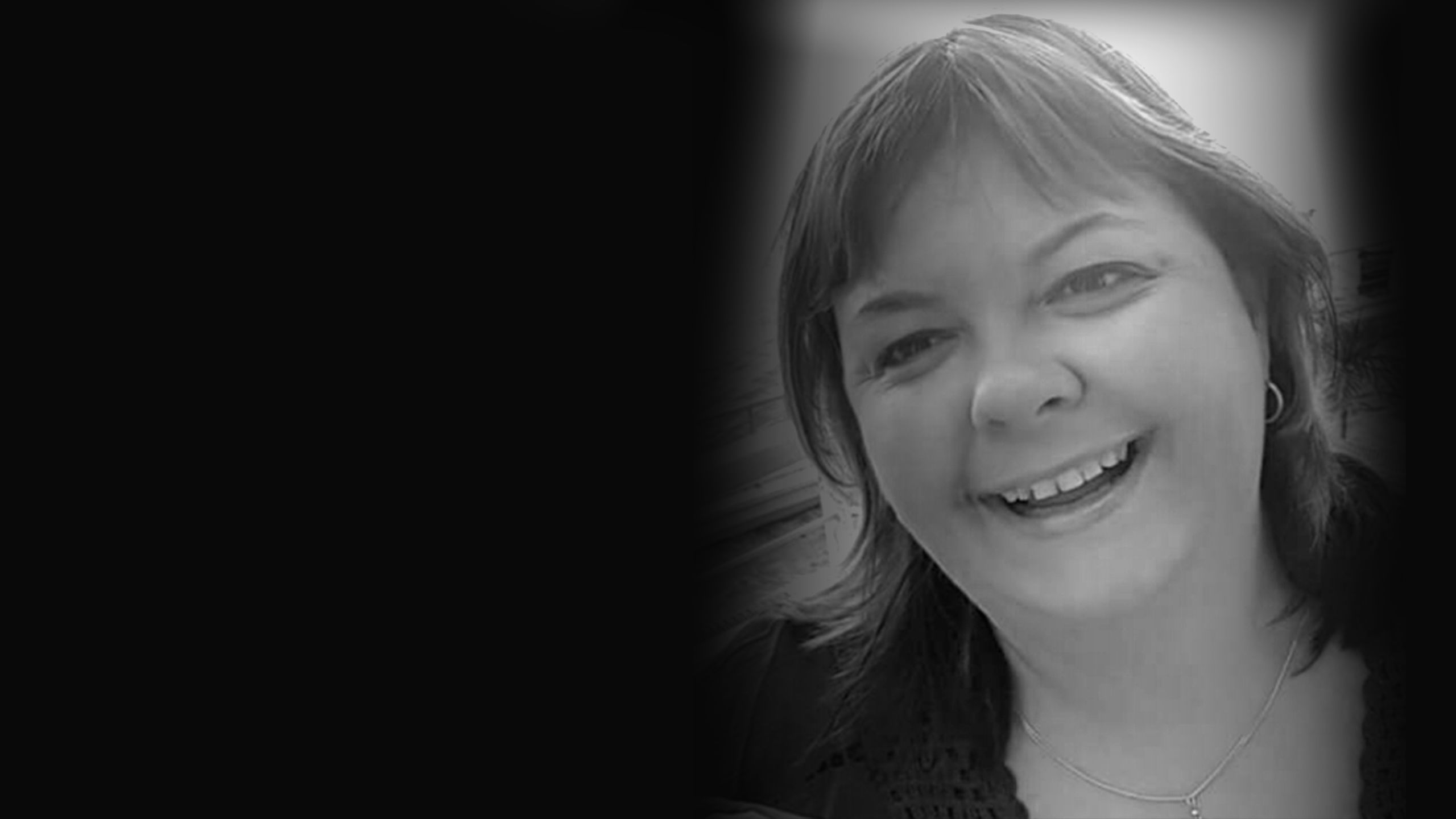
Aged care a skilled and special area of nursing
Lidija Markovic
For a nurse, a residential aged care facility is a unique and special place to work.
You’re advocating for people, assessing residents’ health, providing medication, dealing with families and triaging – but you’re also working within the ‘patients’ home every day.
For Lidija Markovic, a registered nurse at the 60-bed Ballarat Health Service’s Geoffrey Cutter Centre aged care facility, that context creates a valuable opportunity for nurses.
‘Personally, I like getting to know everyone. You hear people’s histories and it’s just fascinating. You get to know their families. We’ve had people here who’ve done all kinds of professions, from artists, to ballerinas, to people who’ve been together, married, for 70 years.
‘Even though you might get to know some of your patients in other areas (of nursing) it’s very short stays.’
Lidija has been nursing for 25 years and worked in psycho-geriatric nursing, rehabilitation, oncology and community nursing with RDNS before moving to Ballarat 10 years ago.
It’s unfortunate that aged care nursing seems to be considered by other nurses and allied health professionals as a less skilled area, Lidija said.
‘When I was working as an oncology nurse, or in rehab, or as a mental health nurse, I feel like people respected that more than working in aged care,’ she said.
‘Eventually when people find out that you have experience, they treat you differently, but it shouldn’t be the case because there’s a lot of really qualified people working in aged care.
‘It’s a shame because you’re still doing the nursing role, and following up, and advocating for people. That doesn’t change. You’re still giving the treatment that’s required, you’re still triaging. It’s just a different setting.’
Restrictions on visitors to aged care residents during the Covid-19 crisis revealed the extraordinary dedication of nurses and other aged care staff, who took the time to talk with residents in the absence of their families, Lidija said.
As Ballarat Health Service’s Geoffrey Cutter Centre is a public aged care facility, Lidija works with a nurse to resident ratio of eight residents. As an RN, Lidija cares for her own group of residents as well as supervising enrolled nurses who have their own caseload.
With people living longer and remaining living in their homes until they are no longer able to care for themselves, nursing home residents tend to arrive with a number of chronic health conditions.
With about 70 per cent of residents also having dementia, most residents have high, complex nursing care needs.
‘We’re getting people who can’t walk by the time they get here, so they need full care,’ Lidija said.
Working with residents with advanced dementia is time-intensive but again, nurses’ and carers’ knowledge of residents’ personalities and foibles is useful in managing difficult behaviour.
‘Because we know the people we look after, we know what triggers certain behaviours and try to avoid those triggers,’ Lidija explained.
Of course, in working with older people and getting to know them so intimately, aged care nurses regularly deal with the grief of residents dying.
‘We try to support our younger nurses because it’s not something they’re used to,’ Lidija said.
‘We know these guys. We’ve got feelings. And some residents are here for a couple of years and you’re at work with them five days a week; you’re going to get to know everything about a person.’
If a family member cannot be present when a resident’s health has taken a sudden turn for the worse or is close to death, a staff member will stay on.
‘We will go out of our way to make sure one of us is here until the person passes away. It’s the human thing to do. You’d stay with your own family. Of course you’re going to stay with a person you share every day with,’ Lidija said.
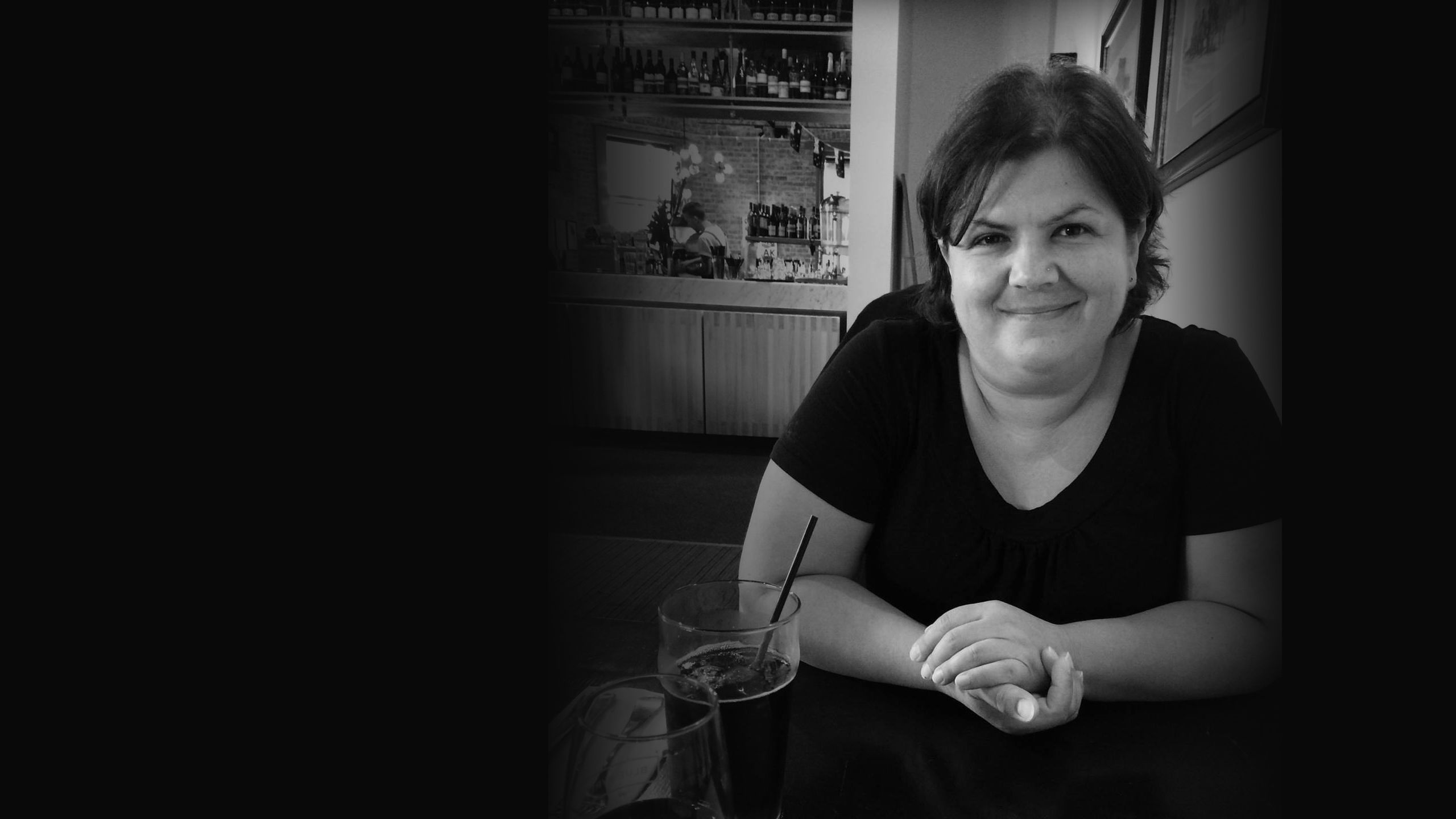
From chicken factory to children’s emergency nursing specialist
Ian Law
Ian Law talks about how nursing children is different from nursing adult patients
When Ian Law arrived in Melbourne from the UK in 2003 and began working at Sunshine Hospital’s emergency department, he was hugely relieved to find nurse to patient ratios.
‘Having only three or four patients at any one time meant you could go in and give the care that patients need; you weren’t skipping things and taking chances,’ Ian said.
Ian is Scottish but had been nursing in Birmingham for five years, in orthopedics and the emergency department, before coming to Australia.
There was no such thing as a supervised ‘grad year’ in the UK, Ian said, so in his first job as a nurse on an orthopedic ward, Ian was allocated 12 pre and post-operation patients, with one healthcare assistant to help him.
‘I remember thinking I’ve never worked so hard in my life, doing that. Elderly patients, fractured necks, femurs, road trauma…you were dealing with it all.
‘And then I moved to ED, which was even busier but I had far more supportive colleagues. I remember being really scared when I started because of the number of patients I had and the workload.’
It wasn’t as if Ian was unaccustomed to difficult work and long hours. After leaving school at 15 he worked in a range of jobs and places – as a diesel mechanic, on an oil rig, in a chicken factory, as a bus driver…
Prior to studying nursing in Aberdeen in his mid-30s, Ian was a paramedic for three and a half years in Peterhead, a fishing town in north-east Scotland.
‘It’s a bit of a rough place,’ Ian said. ‘There was quite a lot of violence at nights. We were doing on-call at night and working on weekends as well.
‘In those days there was a single crew so there would only be one person in the vehicle.’
On the upside, while working as a paramedic he defibrillated patients and brought them back to life.
‘When the person who’s died in the back of your vehicle, and you have successfully resuscitated them, comes back a week later to give you a bottle of whiskey, that’s quite amazing,’ Ian smiled.
But Ian could see that the stress of working under those conditions was unhealthy long-term, so decided on a career change.
Seventeen years after arriving at Sunshine Hospital’s emergency department, Ian is still there. But he has since become a paediatric nurse practitioner and educator, advancements he credits to the encouragement of other nurses and doctors at the hospital.
Ian became endorsed as a nurse practitioner in 2007 and finished his Master’s degree in 2008.
His scope of practice as a nurse practitioner means Ian can provide care for children with almost any injury and illnesses such as croup, bronchitis and asthma.
‘The scope has expanded so much that most of the initial restrictions have disappeared from the guidelines,’ Ian said.
‘Things I would have had to hand over to medical staff have become my specialty and I teach medical staff how to do.
‘I’m also a resource within the department because I’ve been in Sunshine ED for so long and I know all the systems.’
Caring for children involves a different approach to caring for adult patients, Ian said.
‘You have to work a lot harder generally to get their history, to find out what’s wrong with them,’ he explained.
‘They don’t disguise it but you’re a stranger to them, and they won’t open up very quickly, so you have to build a rapport with them and you’ve got limited time and they’re in pain.
‘So sometimes you get there by being a bit silly to try and build a rapport... You’ve got to work on their level, and that depends whether they’re a teenager or a two-year-old.’
Ian may have changed jobs ‘every five minutes’ in his youth but despite being at Sunshine Hospital’s emergency department for 17 years, he’s continually engaged by the variety of his work and the satisfaction of providing quality care.
‘I just think for me it’s been a great career, being able to help so many people - and working with my colleagues has just been fantastic,’ he said.
‘A lot of times when children come in they’re in pain, they’ve got a broken arm; you can make that a lot better for them by trying to relax them, make it a more enjoyable experience for them and also for the parents as well, making sure they’re informed,’ Ian said.
‘It’s really satisfying for me and it makes a real difference to kids if they come in with a deformed arm that needs to be reduced (set) I can do that in emergency for them without the child having to have an operation.’
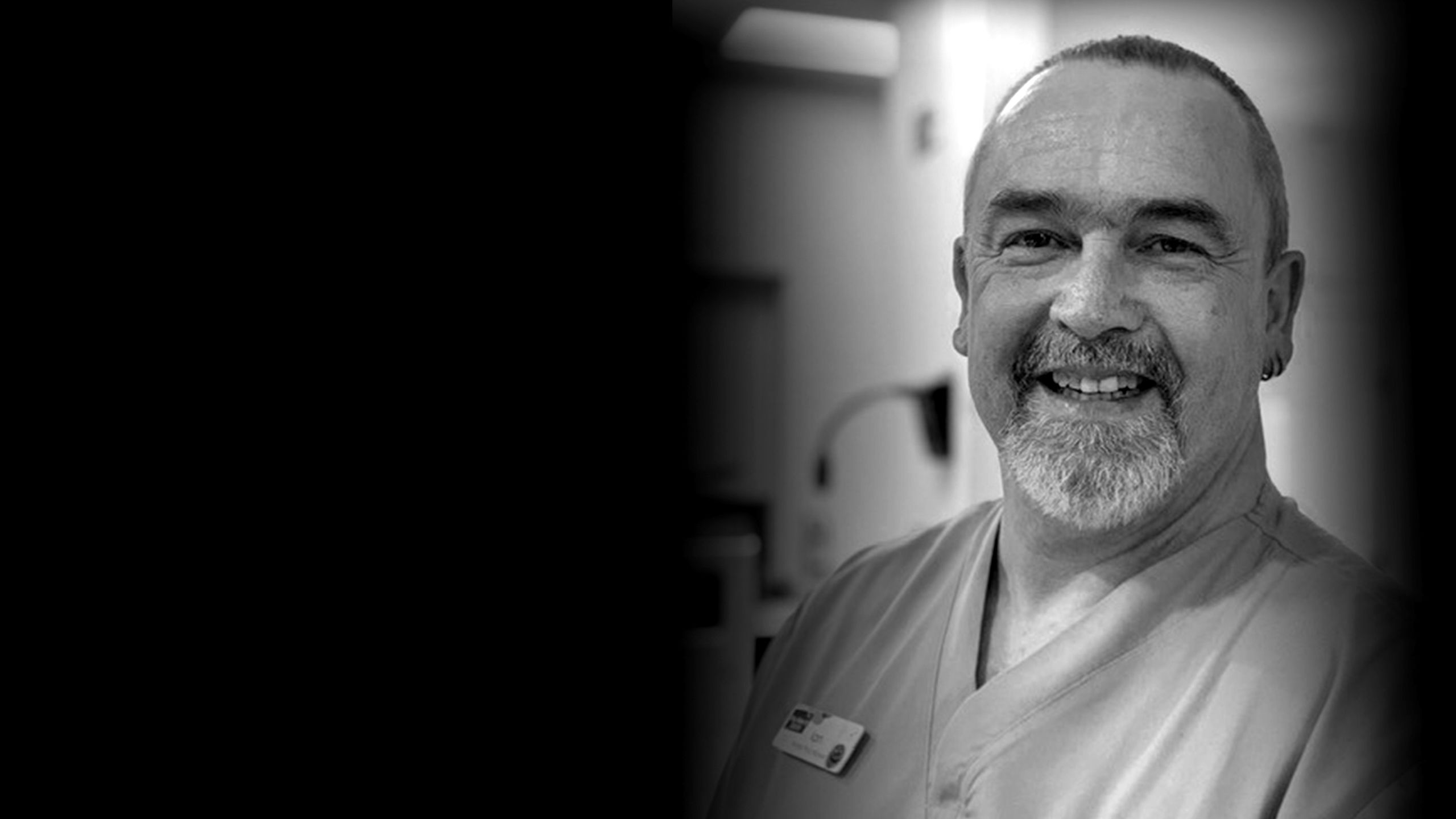
A youthful but wise career choice
Darren Tyrrell
Darren Tyrrell describes why he chose nursing in mental health and what's hard for patients during Covid-19 restrictions
Although his grandfather and aunt were both nurses, Darren Tyrrell admits that when his 17-year-old self decided to train as a nurse, he really had no idea what the profession involved.
Now with decades of experience in general nursing, alcohol and other drugs (AOD) nursing and mental health nursing, Darren reflects that it’s the best decision he’s ever made.
Darren completed his nursing training at Mildura Base Hospital and at the Northern District School of Nursing, Bendigo.
He worked in a surgical ward at Mildura, then at the (now-defunct) Fairfield Infectious Diseases Hospital, before training as a mental health nurse at Larundel Hospital, which closed under deinstitutionalisation policies in the late 1990s.
While working on a mental health ward during his general nursing training, Darren witnessed a patient’s recovery; the turnaround would mark him for a nursing career in AOD and mental health.
‘The client was probably in her late 60s and she had depression,’ Darren recalled.
‘I just saw her get better over five weeks and for me, I could not believe the difference from when she was admitted. (She became) a smiling, creative person and all the other patients loved her and looked up to her.
‘When she went in, she was like this empty shell. There was nothing there.’
Darren worked as a nurse in mental health at The Austin Hospital and The Melbourne Clinic, before turning to community nursing and completing a Graduate Diploma in Addiction Studies. For five years, Darren advocated for ANMF (Vic Branch) members as an industrial organiser before choosing to return to clinical work.
For more than 10 years, Darren has worked as a nurse specialising in mental health in a medical team at cohealth community health service.
He loves the role, which combines elements of mental health, general health and AOD nursing. Clients are referred to Darren by GPs or psychiatrists and either receive intensive, ongoing support if they have low prevalence mental health disorders such as schizophrenia, bipolar disorder or a severe personality disorder, or targeted psychological support for up to 12 sessions per year if they have a mental illness such as depression or anxiety.
During the Covid-19 physical distancing restrictions, Darren has been working from home, with cohealth providing IT assistance to set up his computer to securely access client details so he can contact them by telephone. His clients live in a range of contexts: some are homeless or at risk of homelessness; some live with their families; some live-in supported accommodation, while others own their own homes. Most would usually visit cohealth to see Darren.
Understandably, the past weeks of staying home, physical distancing and fears around contracting Covid-19 have heightened anxiety for some people with pre-existing mental health issues. Much of Darren’s work during the Covid-19 era has involved educating clients about what they need to do to avoid contracting or spreading coronavirus.
For many clients, conveying the need for physical distancing requires skilled communication and patience.
‘A lot of clients have entrenched behaviours and they have cognitive issues processing health information, so you might go over it a number of times but they don’t understand it or continue with previous behaviours,’ Darren explained.
‘It’s also very difficult for people with the high prevalence disorders like anxiety and depression because a lot of them feel lonely anyway and it just exacerbates their loneliness that they can’t get out and see people.’
Some clients with severe trauma histories, including those who have been abused in institutional care and refugees/asylum seekers, have faced a huge struggle with the isolation of physical distancing.
Providing support to clients over the phone, without facial cues or body language, is more challenging for Darren. With more recent clients, Darren has to work harder on the phone to reassure them that he is listening and present for them.
It’s easier with long-term clients who already know and trust him but for some of them, not visiting Darren is a keenly-felt absence in their lives.
‘A lot of clients that I’ve got a really good relationship with have such a tough life and you might be the only person they have a significant relationship with, and to give them a tap on the shoulder as they walk out of the office door, or give them a big smile when you see them in the waiting room, that means so much to them and they’re not getting that,’ Darren said.
Darren’s general health nursing experience means he is attuned to his clients’ overall health; many clients have co-existing physical conditions such as diabetes, chronic obstructive pulmonary disorder, obesity, and liver conditions.
It’s been particularly crucial for Darren to advise and educate these clients, so they avoid contracting Covid-19.
‘Covid’s very clever in that sometimes you can’t tell – people can be asymptomatic or have very mild symptoms. I’ve had clients say to me “I’ve just got a cold but I might go into the clinic and pick up my script” and I’ll say “Hang on a minute, we can send the script to you or to your pharmacist”,' Darren said.
For International Nurses Day, Darren sends out a message to anyone considering a career in nursing, to ‘give it a go’.
‘When I went into it I was really uncertain and when you’re only 18, some of the things you do with people are very personal and what they’re sharing with you – but it’s been a really good decision.’
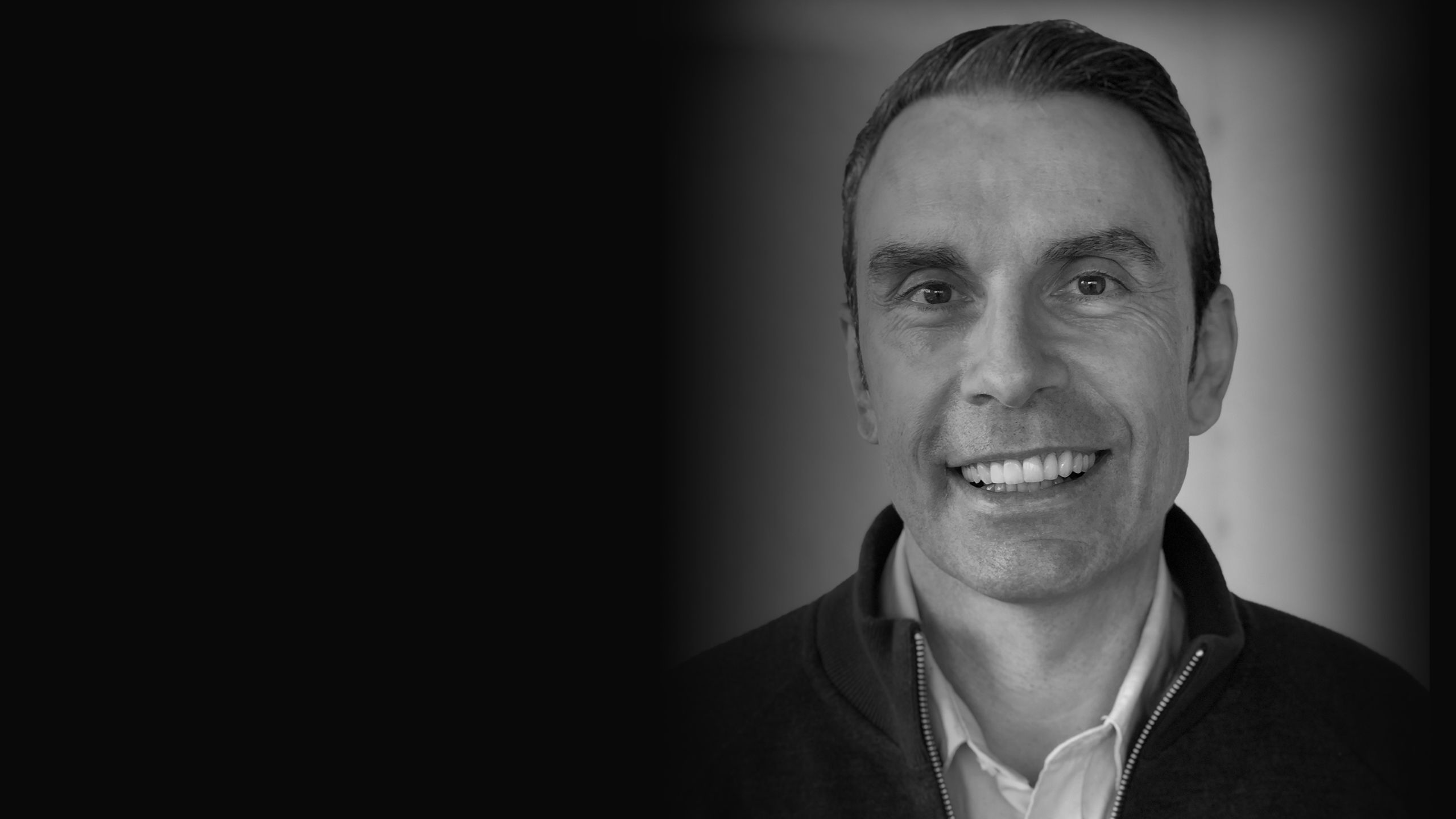
Nurses, ANMF (Vic Branch) stands with you.
We wish all our nurse members a happy International Nurses Day.
